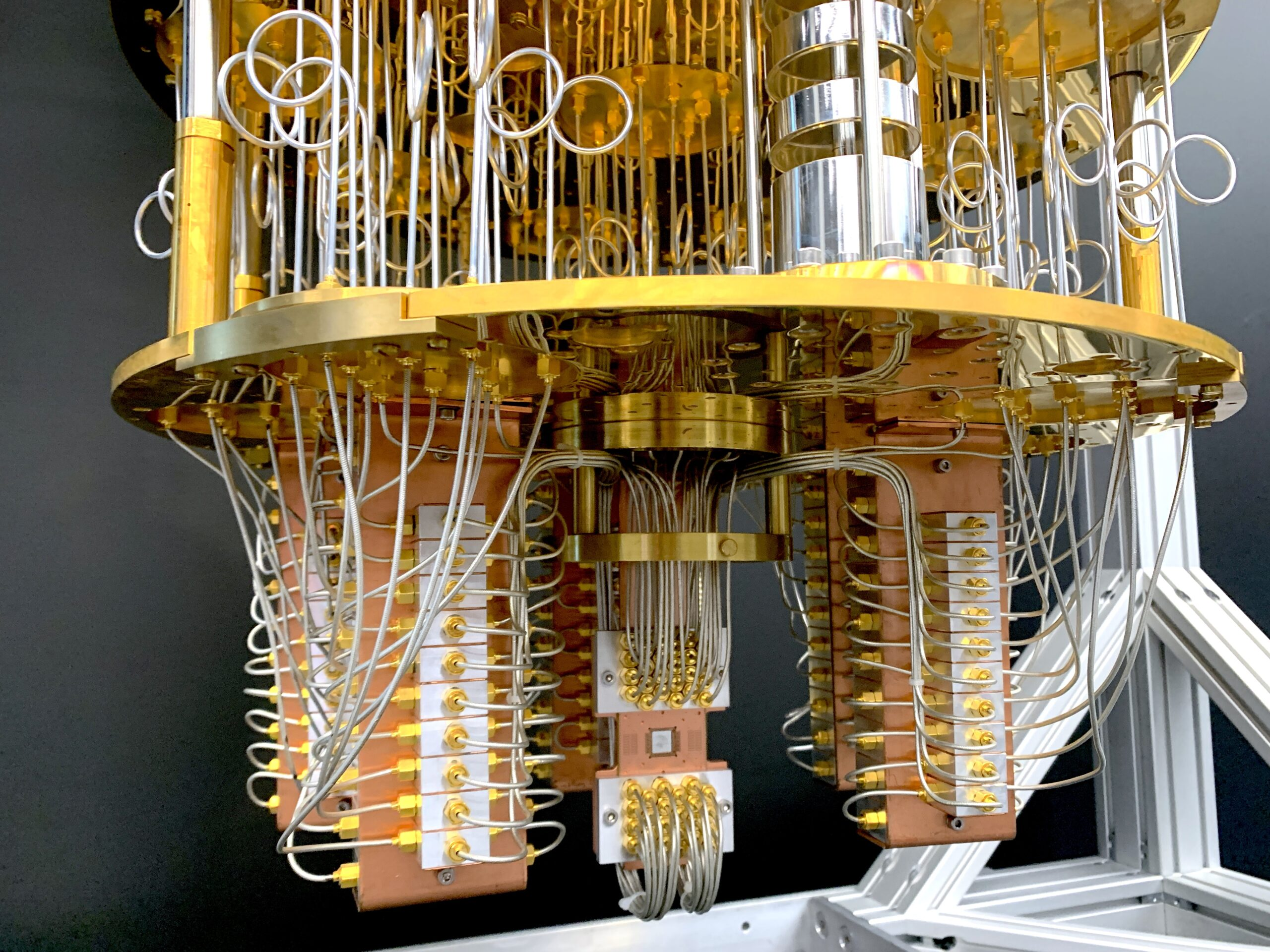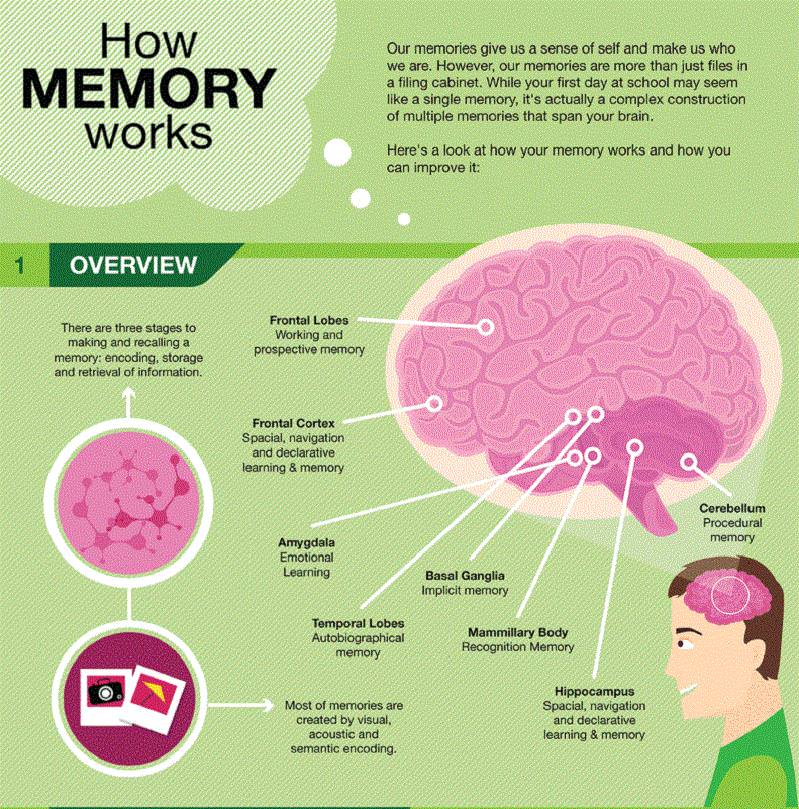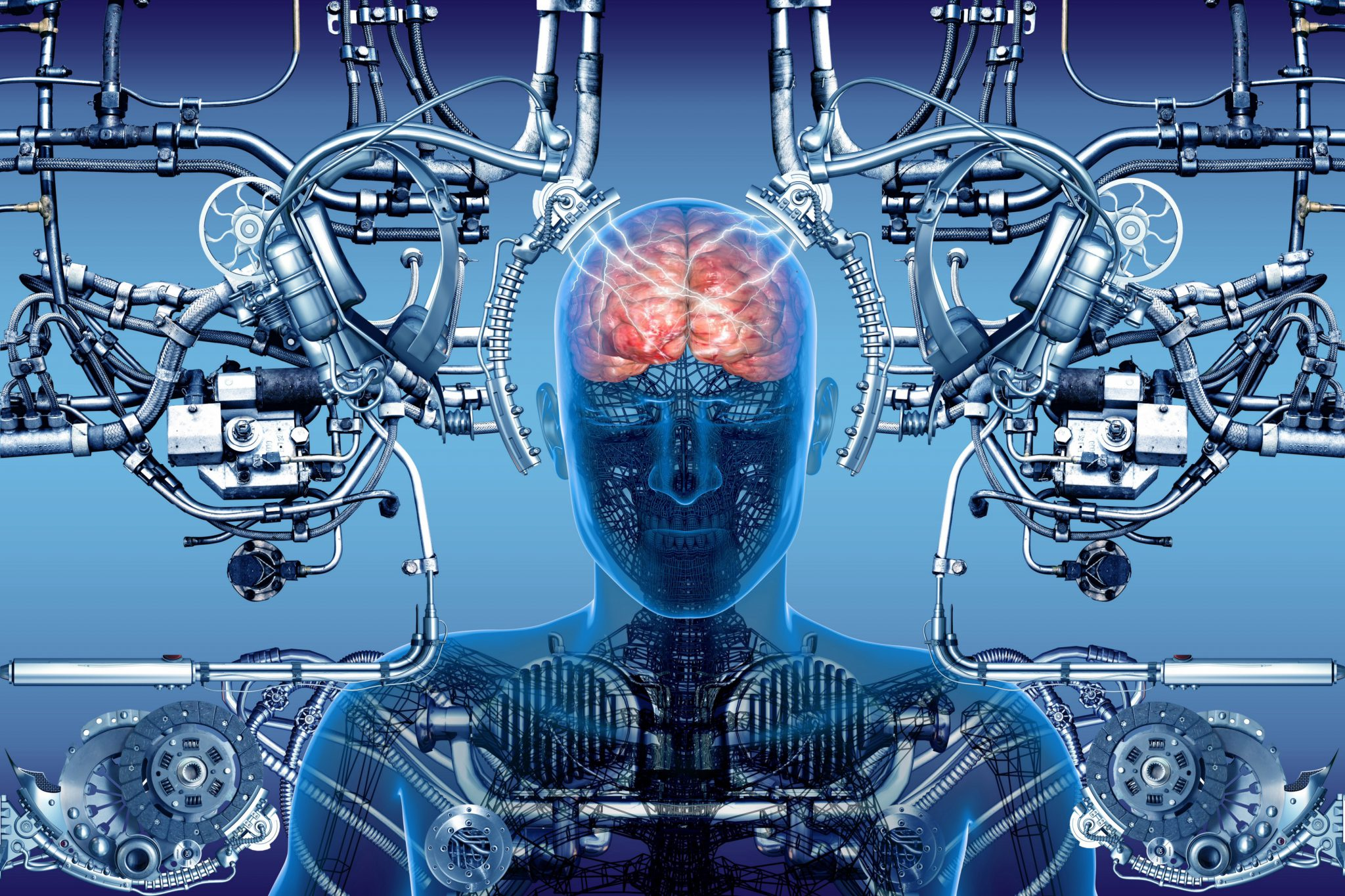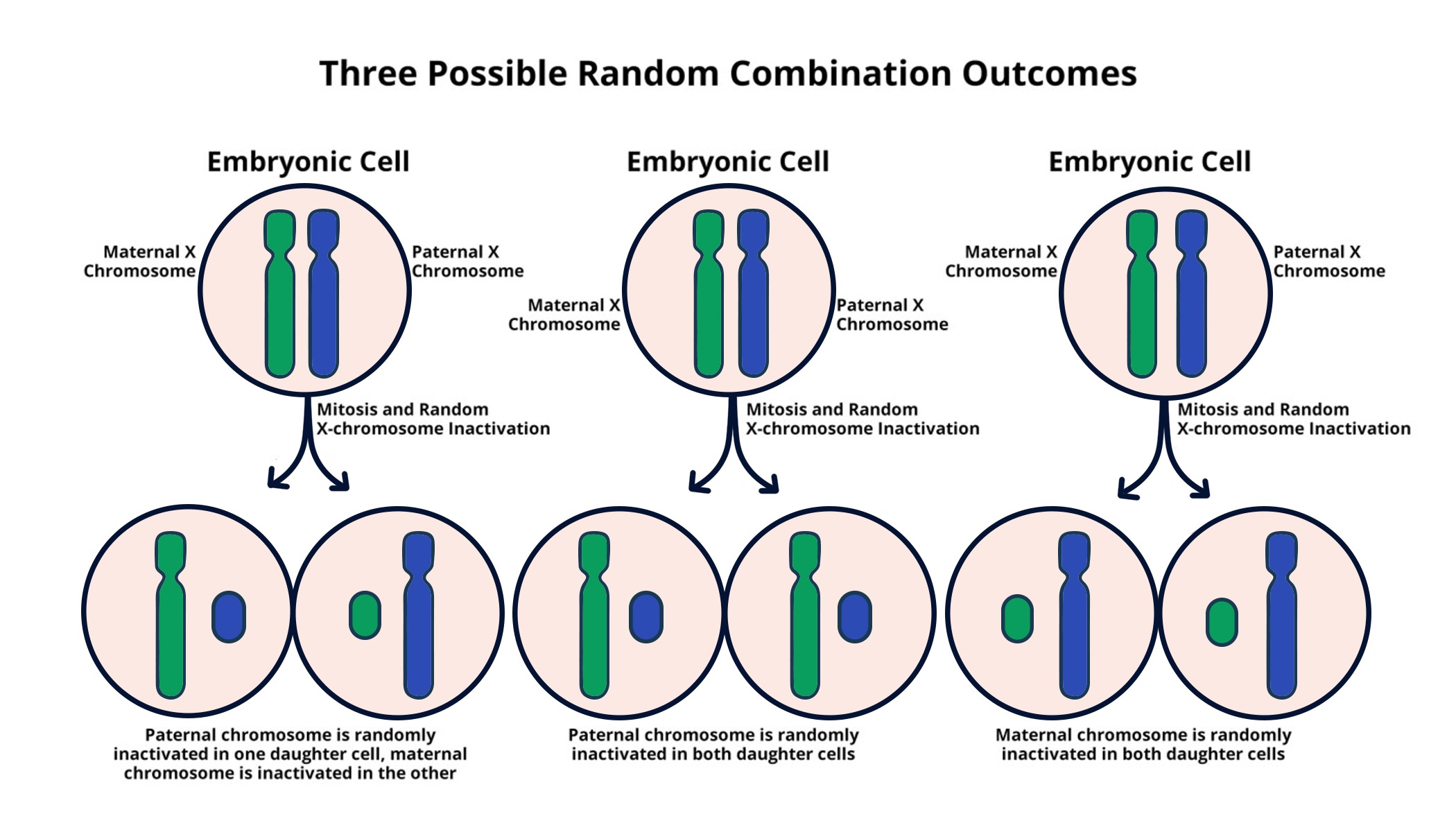Quantum computing represents a revolutionary advancement in the field of technology, leveraging the principles of quantum mechanics to perform computations that surpass traditional methods. Recent breakthroughs, such as the successful trapping of molecules to conduct quantum operations, signal a turning point for this innovative realm. Researchers have discovered that by utilizing trapped molecules, particularly ultra-cold polar molecules, they can exploit complex internal structures to enhance computational capabilities significantly. This leap could pave the way for the development of molecular quantum computers, expanding the potential of quantum logic gates and superposition effects. As the landscape of quantum computing continues to evolve, the integration of trapped molecules may redefine the boundaries of what is possible in computational speed and efficiency.
The realm of advanced computational systems, often referred to as quantum information technology, is transforming how we approach problem-solving and data processing. Breakthroughs in manipulating trapped particles, specifically targeting molecular entities, are sparking new avenues in the design and function of novel computational devices. Researchers are uncovering the remarkable potential of these molecular structures to facilitate complex operations, often characterized by unique quantum states like superpositions. As science progresses towards creating sophisticated molecular quantum architectures, we witness a compelling shift in the efficiency and capabilities of computation, mirroring the evolution seen with traditional logical systems to their quantum counterparts. The future of this field appears bright, with innovation stemming from harnessing the intricate interactions within molecular frameworks.
The Breakthrough in Quantum Computing with Molecules
The recent advances in quantum computing have seen a remarkable shift with the successful trapping of molecules to perform pivotal quantum operations. This leap, spearheaded by a Harvard research team led by Kang-Kuen Ni, marks a significant milestone in the quest for more powerful computational frameworks. Historically, researchers have concentrated on simpler particles due to the complexities and challenges of working with molecules, which have intricate internal structures. However, the use of ultra-cold polar molecules as qubits is set to transform the landscape of quantum computation and leverage the unique properties of molecular systems.
Now that molecules have been incorporated as the foundational units of quantum logic, researchers foresee an exponential increase in computational speeds and efficiency. This research not only signals a breakthrough in technology but also lays the groundwork for constructing a molecular quantum computer that can harness the unique characteristics of molecular interactions. The incorporation of molecular qubits could potentially lead to innovative applications across various fields, enhancing capabilities in medicine, finance, and data science.
Understanding Molecular Quantum Computers
Molecular quantum computers are a novel approach to leveraging the complex interactions within molecules to conduct quantum operations. By applying optical tweezers to trap sodium-cesium (NaCs) molecules and employ their electric dipole-dipole interactions, researchers can manipulate the molecules to perform operations that were previously beyond reach. The careful control of molecular rotation has allowed these scientists to successfully create a two-qubit Bell state with impressive accuracy, highlighting the promise of utilizing molecular systems in quantum computing.
The implications of utilizing molecular systems are profound. Unlike traditional qubits that rely on simple binary states, molecular qubits can exploit the principle of superposition, existing in multiple states simultaneously. This characteristic not only enhances computation but also opens pathways for creating entangled states, which are crucial for advanced quantum computation. The future development of molecular quantum computers is poised to transcend the limitations of existing technology and revolutionize computational paradigms.
Quantum Operations and Their Role in Computing
Quantum operations are central to the functionality of quantum computers, driving their capabilities beyond classical systems. These operations, facilitated through quantum logic gates, operate differently from traditional gates, employing qubits that can maintain superpositions and entanglement. The Harvard team’s exploration into using trapped molecules has demonstrated new methodologies for executing these quantum operations, especially the iSWAP gate which plays a critical role in generating entangled states utilized in quantum computing.
By focusing on the interactions between trapped molecules in ultra-cold environments, researchers can stabilize quantum states and enhance the reliability of quantum operations significantly. The system they developed provides a unique opportunity to explore quantum logic gates through molecular qubits, enabling precision in manipulating quantum states and increasing the potential for error correction. This pioneering approach indicates that quantum operations using trapped molecules may soon become standard in advancing quantum computing technology.
Applications of Trapped Molecules in Quantum Computing
The utilization of trapped molecules within quantum computing paves the way for manifold applications across various sectors. With the ability to manipulate complex molecular systems, researchers can potentially create highly efficient quantum algorithms that could outperform classical counterparts. Industries such as finance, pharmaceuticals, and logistics stand to benefit from innovations arising from molecular quantum computers, as these devices could simplify complex calculations and model intricate systems with greater accuracy.
Furthermore, the adaptability of trapped molecules can enhance simulations in quantum chemistry and materials science, assisting scientists in developing new materials and drugs. The ability to perform quantum operations with higher fidelity and speed positions molecular quantum computers at the forefront of future computational technology, promising advancements that can push the boundaries of what’s achievable in science and engineering.
Superposition and Its Impact on Quantum Computing
Superposition stands as one of the core principles of quantum mechanics and a vital factor in the advancements of quantum computing. By allowing quantum bits—or qubits—to exist in multiple states simultaneously, superposition provides quantum computers with their unparalleled processing power. The Harvard team’s innovative use of trapped molecules as qubits introduces newfound potential for harnessing superposition in practical applications, as their research demonstrates actual implementations of this principle using molecular systems.
The realization of superposition through trapped molecules will revolutionize tasks such as data encryption, complex system simulation, and machine learning. By operating on several states at once, molecular quantum computers can conduct calculations with a depth and speed unattainable by classical systems. As researchers continue to refine the control mechanisms for trapped molecules, the practical embodiment of superposition is likely to yield transformative breakthroughs in computing technologies.
The Role of Quantum Logic Gates in Molecular Systems
Quantum logic gates are imperative to the operation of quantum computers, serving as the building blocks for quantum circuits. Unlike conventional logic gates that process binary states, quantum logic gates manipulate qubits, enabling qubits to exist in superpositions. The development of quantum gates designed for molecular systems is an exciting pathway toward achieving robust molecular quantum computing, as demonstrated by the Harvard research team’s creation of the iSWAP gate.
The iSWAP gate not only enables the manipulation of qubit states but also facilitates the generation of entangled states. This entanglement—a cornerstone of quantum computing—enables unprecedented collaboration and correlation between qubits, regardless of distance. As researchers gain more insights into the behavior of molecular qubits, the implementation of quantum logic gates tailored for these systems will become integral to advancing quantum computation and achieving new milestones in technology.
Overcoming Challenges of Molecular Systems for Quantum Use
Despite the promising outlook for molecular systems in quantum computing, challenges persist in harnessing their potential. Historically, the intricate movements and inherent instability of molecules posed significant barriers, limiting their viability for reliable quantum operations. However, by employing ultra-cold environments and optical tweezers, researchers are now able to minimize molecular motion and control their quantum states with greater precision. This meticulous approach has led to stunning advancements that could eventually reshape quantum technology.
Future research efforts will likely focus on refining these techniques to enhance coherence and stability in molecular quantum systems. By addressing the challenges presented by molecular unpredictability, scientists can build toward more sophisticated quantum technologies. The commitment to unraveling the complexities of molecular systems is essential to unlocking their extraordinary potential and ensuring their successful implementation in the next generation of quantum computers.
The Future of Quantum Computing with Molecular Systems
As the field of quantum computing evolves, the integration of molecular systems signifies a transformative era in computational technology. Researchers envision molecular quantum computers that can efficiently handle vast amounts of data while capitalizing on the unique properties of molecular interactions. With the groundwork laid by teams like the one at Harvard, the future holds the promise of a more nuanced understanding of quantum mechanics, which may lead to breakthroughs that redefine the limits of artificial intelligence and machine learning.
The exploration of molecular quantum systems is only just beginning, and the appetite for innovation in this sector is growing. As scientists continue to unlock the potential of trapped molecules for quantum operations, we can anticipate a wave of developments that will enhance our computational capabilities. From optimizing algorithms to improving encryption techniques, the implications of advancing molecular quantum computing are boundless, potentially revolutionizing numerous industries and everyday life.
Collaborative Efforts in Quantum Research
The advancements in molecular quantum computing highlight the importance of collaborative research efforts in overcoming complex scientific challenges. The contribution of interdisciplinary teams, combining expertise from physics, chemistry, and engineering, has been instrumental in achieving the recent breakthroughs in trapping molecules. These collaborations not only foster diverse approaches to problem-solving but also enhance the sharing of knowledge and resources, paving the way for future innovations.
Such partnerships are vital as they enable researchers to tackle the multifaceted nature of quantum technology. By working together, scientists can combine their findings and methodologies to accelerate progress in the field. The synergies created through cooperative research efforts may lead to additional breakthroughs, reinforcing the role of collaboration as a crucible for success in molecular quantum computing and the broader landscape of quantum technology.
Frequently Asked Questions
What are the advantages of using molecular quantum computers over traditional quantum computing methods?
Molecular quantum computers leverage the complex internal structures of molecules, allowing for enhanced quantum operations compared to traditional quantum computing methods that primarily use trapped ions or superconducting circuits. This complexity can lead to greater computational speeds and capabilities, facilitating the creation of superpositions and entangled states essential for advanced quantum algorithms.
How do trapped molecules contribute to advancements in quantum operations?
Trapped molecules enable researchers to execute quantum operations with high accuracy by using optical tweezers to control their positions in ultra-cold environments. This control minimizes unwanted motion, thereby preserving coherence and stability during quantum operations. The recent breakthrough by trapping sodium-cesium molecules showcases this potential and marks a significant step towards practical molecular quantum computing.
What role do quantum logic gates play in molecular quantum computing?
Quantum logic gates are fundamental components in molecular quantum computing, functioning similarly to classical logic gates but for qubits, which are the basic units of quantum information. In the context of molecular quantum computers, logic gates allow for operations that create superpositions and entangled states. Specifically, the iSWAP gate, used in recent experiments, facilitated the swapping of states between two trapped molecules, highlighting how quantum logic gates can manipulate molecular qubits.
How does superposition function in quantum computing with trapped molecules?
Superposition in quantum computing allows qubits to exist in multiple states simultaneously, vastly increasing computational power. In the realm of molecular quantum computing, using trapped molecules as qubits enables the exploration of diverse superposition states, leading to more complex operations and interactions. This capability is crucial for harnessing the full potential of quantum algorithms, offering advantages over classical systems.
What are the challenges researchers face when working with molecular quantum computers?
One of the primary challenges in molecular quantum computing is maintaining the stability and coherence of qubits due to the intricate and often unpredictable behavior of molecules. Researchers must minimize motion and control interactions precisely to prevent decoherence. The recent work involving trapping molecules in ultra-cold environments represents a significant advancement in overcoming these challenges, allowing for reliable quantum operations.
Can molecular quantum computers revolutionize specific fields like medicine or finance?
Yes, molecular quantum computers have the potential to revolutionize fields such as medicine and finance by performing complex calculations at unprecedented speeds that are unattainable by classical computers. Their capacity to process vast amounts of data and solve intricate problems quickly can lead to breakthroughs in drug discovery, financial modeling, and optimization problems, ultimately transforming various industries.
What is the significance of the recent breakthrough in trapping molecules for quantum computing?
The recent achievement of successfully trapping molecules to perform quantum operations signifies a major milestone in the development of molecular quantum computers. It represents the last critical building block needed to exploit the unique properties of molecules, allowing researchers to advance quantum computing technology towards practical applications, enhancing computational capabilities beyond current methods.
| Key Point | Details |
|---|---|
| Breakthrough in Quantum Computing | A research team at Harvard successfully trapped molecules for quantum operations, presenting a significant advancement in quantum computing technology. |
| Use of Molecules as Qubits | Ultra-cold polar molecules were utilized as qubits, marking their first use in quantum computing despite previously being overlooked due to complexity. |
| Historical Achievement | After 20 years of attempts in leveraging molecular structures, the team successfully executed a crucial quantum operation with 94% accuracy. |
| Implications for Future Technology | The research paves the way for constructing molecular quantum computers, which could revolutionize fields such as medicine, science, and finance. |
| Comparison with Existing Systems | Current quantum experiments focus on ions, neutral atoms, and superconducting circuits, while this work involves more complex molecular processes. |
| New Techniques | The use of optical tweezers to trap and manipulate molecules illustrates innovative techniques in managing quantum states. |
| Funding and Support | The research was supported by multiple organizations including the Air Force Office of Scientific Research and the National Science Foundation. |
Summary
Quantum computing stands at the forefront of technological innovation, with recent breakthroughs paving the way for transformative advancements. The achievement of trapping molecules to conduct quantum operations by a Harvard research team marks a pivotal moment in the field. This historic effort not only demonstrates the feasibility of using complex molecular structures as qubits but also opens avenues for constructing future molecular quantum computers. As research progresses, the potential applications of quantum computing could reshape industries, enhance computational capabilities, and lead to revolutionary outcomes in various sectors.



